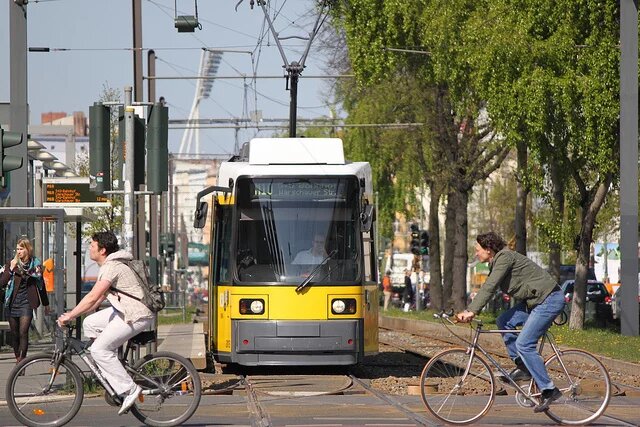
Instead of a budget that slashes money for important environmental projects, an Israeli “Green New Deal” will bring hope for economic growth and advance the wellbeing of all echelons of society.
A threefold crisis has developed in Israel in recent years. The most prominent crisis, most often featured in the media, is economic: manifested mainly in the state budget’s shortfalls. Israel is facing a budget deficit caused by a decline in the state’s income from direct taxation, a just method in theory, but not when implemented through Netanyahu’s misguided policy of reducing corporate tax payments, as a result of the Encouragement of Capital Investments Law.
The social crisis has also drawn attention in recent days. The latest brutal OECD data shows that Israel has the highest poverty rates among in the Western world.
However, there is a third crisis. The environmental crisis manifests itself through the output of greenhouse gases, disappearing open spaces and the clogging of Israel’s transportation arteries, as we have seen recently in traffic jams even on Route 6 – the Finance Ministry’s flagship project to encourage private transportation.
However, this threefold crisis also presents an opportunity to rectify matters. With an understanding of this challenge, environmental organizations in Israel and in the world – inclduding Europe’s green parties – have presented a new economic perspective known as the “Green New Deal.” In 2012, a group of environmental and social organizations in Israel published a document titled the Economics of Tomorrow: Green Policy for Economic Resilience, which presents concrete solutions to the threefold crisis, including the building of local infrastructure, reducing consumption, lifestyle changes, green taxation and poverty reduction.
The state budget, approved recently by the government, achieves almost the complete opposite of what the report recommends. While it includes some benefitial programs, such as a symbolic allocation of money meant to encourage government workers to use public transportation; but for the most part, it works to the contrary. Most grave is the government’s decision to slash the budget for the Greenhouse Gas Emissions program, which would be a death knell to state efforts at reducing environmental damage. At the request of environmental umbrella organization “Life and Environment,” even President Shimon Peres came out against the decision, which constitutes a violation of the international commitment that he pledged.
Environmental and social groups developed and determined the steps outlined in the “Green New Deal” national plan following a long and rigorous process. They were selected from an array of possible measures, foremost according to their economic feasibility. This was namely based on assurances of quick return on investment to the economy, and including a transition to efficient use of resources and a reduction in electricity consumption in all sectors. As part of this plan, 200 projects for energy efficiency have already been generated and the first steps taken have already led to a savings in household expenses. By way of example, the Energy and Water Ministry’s campaign to replace household air-conditioning units will reduce annual kilowatt-hour consumption by 50 million, a savings of some NIS 700 for the average family’s annual electricity bill.
The environment is not the only victim of the new budget, however. It also works against the economy and the consumers. In the social realm, for example, the budget fails to address existing social gaps and poverty. While in Europe the green parties are calling to increase property and income taxes for high wage-earners, there are no steps whatsoever in this direction in Israel (with the exception of raising income tax in a relative but not a progressive manner). In Israel, levying a tax on second homes could succeed, which would deter investors, thereby lowering housing costs and reducing the onslaught of ravenous consumption of open areas.
In the economic realm, the budget appears impotent in the face of technological changes and progress in global economics. The idea of green taxation has been successfully implemented in Israel only in a few cases (waste disposal and automobiles) but was never further developed. Most striking is the lack of energy taxation based on the extent of environmental damage (a law instituted in Germany 15 years ago) and the extreme lack of taxation on industrial waste emissions.
In the realm of transportation, the state continues to prefer private transportation and essentially rewards employees who maintain a private vehicle. Radical change is called for in this area, one which would include a dramatic upgrade of public transportation (presently hobbling along) in projects such as more dedicated bus lanes, expanding the Jerusalem light rail, more bicycle-share projects – not only in Tel Aviv, and on the other hand, the allocation of substantial benefits for employees who use public transportation and a stiffening of sanctions for private commuters.
Adopting these steps could produce positive results toward emerging from the threefold crisis in which we have become entangled. An Israeli “Green New Deal” can bring hope for green economic growth, not by causing further harm to the weak and to the environment, but by integrating them into economic growth plans and advancing the wellbeing of all echelons of society. In so doing, we would be advancing tomorrow’s economy and not merely continuing to desperately try to overcome the ailments of the “economics of yesterday.”
Mossi Raz is a former member of Knesset, and the chairman of Life and Environment – the Israeli Union of Environmental NGOs.